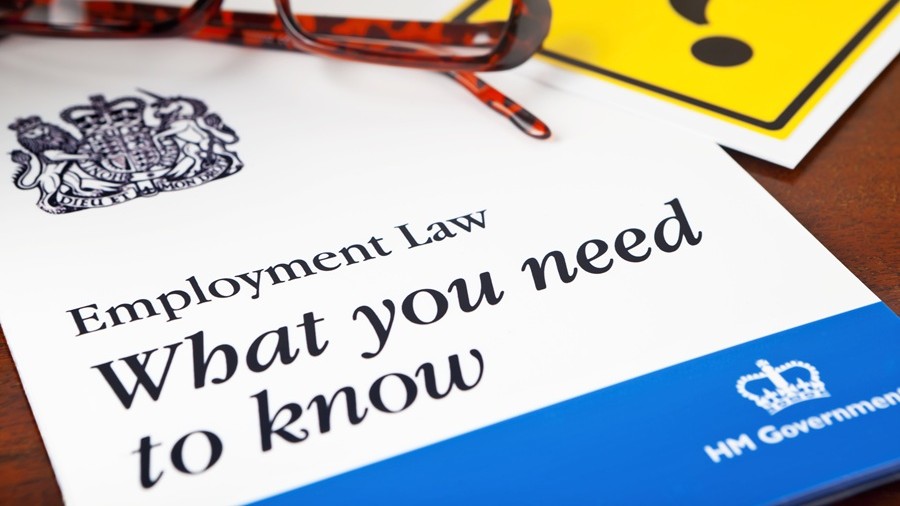Since the coming into force of the Disability Discrimination Act 1995, and more recently under the Equality Act 2010, employers have owed a duty to make reasonable adjustments for disabled employees.
Such adjustments can range from turning on auto captions for online meetings, to adjusting absence policies so as not to penalise those absences caused by a disability. But what is classed as a disability, whether the employer should know about it (and therefore make accommodations), and whether the proposed adjustments are reasonable in all the circumstances can all be tricky questions to answer. Here we aim to shed some light on these issues, summarising and signposting towards guidance for employers.
What constitutes a “disability” for the purposes of the Equality Act?
Under the Equality Act, a person has a “disability” where they have a physical or mental impairment that has a substantial or long-term effect on that person’s ability to carry out day-to-day activities.
The definition will obviously include conditions such as deafness, visual impairment or mobility issues. It also protects so called ‘invisible disabilities’ such as mental health disorders or neurodivergences like autism spectrum disorder or ADHD.
There is no strict requirement that these conditions be formally diagnosed. The EHRC’s Employment Statutory Code of Practice states that it is “important to consider the effect of the impairment not the cause”. With waiting lists for ADHD assessments being up to eight years, this is all the more important for affected employees.
Job applicants are also protected from discrimination, not just employees. However, in practice, what might be considered reasonable for an employee may be more onerous on the employer than what is considered reasonable in respect of a job applicant or interviewee.
When does an employer have a duty to make reasonable adjustments?
The duty arises when an employer knows, or ought to know, that their employee has a disability. Often it has been for an employee to disclose to their employer any disability affecting them or their work to their employers. However, the EHRC guidance for employers makes it clear that an employer must do “everything [it] can reasonably be expected to do to find out.” While this places a significant onus on the employer, it does not go so far as to compromise the dignity or privacy of an individual with intrusive questions.
Employers are not allowed, as per the Equality Act, to ask questions about disability or health before a job offer is made. An exception to this is asking whether any reasonable adjustments will be required as part of the recruitment process, e.g. a wheelchair accessible interview location, or larger font letters.
There are scenarios where an employer may notice an employee is struggling or see a change in their performance. This may be an indication that they have a disability and need support, though an employer should not assume what any issue may be. It is important that employees know who they can speak to if an issue arises that impacts upon their work performance.
What is the nature of the duty owed by an employer?
Employees with a disability are protected from discrimination based on the protected characteristic of disability by the Equality Act, whether it is direct or indirect discrimination.
Once the duty arises the employer has a positive and proactive duty to remove, reduce or prevent obstacles from employment for disabled persons.
Reasonable adjustments are wide ranging and must be tailored to the specific needs of the individual – what helps one person with a particular set of challenges may not be useful to someone else, even if the challenges are similar. You should speak with your employee about what they think would help them.
Remember that speaking about disability can be personal and difficult. If it is a new condition the person may not yet be able to identify what modifications they need in order to perform their role. It is therefore important to take this into account when making arrangements with your employees. This can mean respecting confidentiality and not sharing what has been discussed without permission. ‘Adjustment Passports’ or “schedules of adjustments” are used in some organisations to keep a record of adjustments are made, so that individuals do not need to continually re-explain themselves if there is a change of manager.
What is reasonable?
The issue of what adjustments an employer needs to take to avoid being discriminatory can sometimes cause difficulty but there is no requirement to give employees whatever they ask for simply because they say it could help. Any adjustments need to be reasonable for both parties; the key to this is proportionality.
Factors to be considered when assessing reasonableness include the effectiveness, the practicality and the cost of the proposed adjustment(s).
If a measure has a higher impact on avoiding disadvantage the employee would otherwise experience it is more likely to be reasonable.
If the measure is practical and easy to implement this would also support the argument for reasonableness. However, something being difficult does not necessarily mean that it would be unreasonable if it otherwise is effective at reducing disadvantage.
The matter of cost is for the employer to bear and is impacted by several factors. The size of your organisation plays a role; small businesses with limited resources will have a lower threshold for what is reasonable than larger ones, which could be expected to make more onerous adjustments. Resources across the whole organisation are also to be considered, not just the specific branch the employee is in.
There is also the availability of financial support. The UK’s access to work scheme offers grants to help pay for practical support. While the employee is required to instigate the access to work scheme, the employer will benefit from it and it is therefore worth signposting an employee to the scheme. This is particularly the case for the so called invisible disabilities, however, the benefit is not limited to them.
Ultimately, if an employer and employee disagree about the reasonableness of a proposed adjustment, the employee is entitled to take a claim to the Employment Tribunal for a finding that the employer has failed to make a reasonable adjustment as required under the Equality Act. Employers will usual want to avoid that and the EHRC provides a helpful list of considerations for employers which can be found here.
Once reasonable adjustments have been made it is useful to have a continuing assessment to make sure that they are still appropriate and beneficial, or to modify them as required. Or if an adjustment has not been made, it is best practice to have an appeals process or policy for how that decision is to be taken.
This update contains general information only and does not constitute legal or other professional advice.
Dawn Robertson, Partner: dro@bto.co.uk / 0131 381 2408
Iona Ogilvie: iog@bto.co.uk / 0131 381 2408





